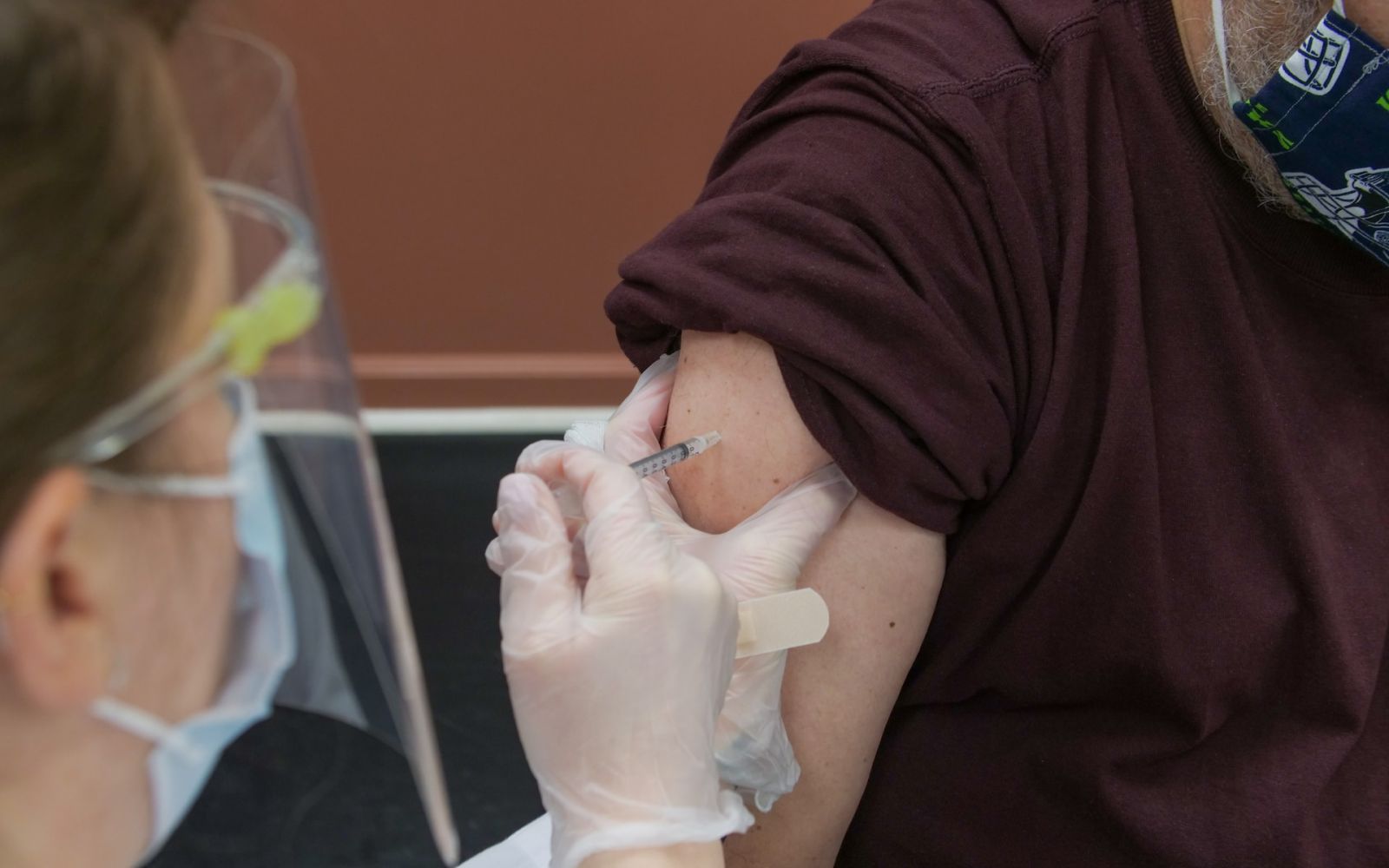When was your last tetanus shot?
Learn why you should have a tetanus booster every 10 years.

Tetanus is a serious nervous system disease caused by a specific bacterium called Clostridium tetani, which is everywhere in the environment, including soil and dust. Tetanus is not contagious and therefore does not spread from person-to-person. It is contracted when spores of the tetanus bacteria enter the body.
Tetanus bacteria usually enters the body through broken skin. That is why if you see a doctor for a cut or after stepping on a sharp object that punctures the skin, the first question they may ask is, “When did you have your last tetanus booster shot?”
Vaccines are available to help prevent tetanus. Without the vaccine, a person who is exposed to the tetanus bacteria may develop symptoms in as soon as three days. These symptoms can have serious effects on your nervous symptom including tightening of the jaw, difficulty breathing and trouble swallowing. Tetanus can be fatal with 10-20% of cases leading to death.
The best way to prevent tetanus is with a vaccine. In addition, if you have an open wound, you can reduce your risk of tetanus with immediate care:
- Apply first aid to even minor, non-infected wounds like blisters, scrapes or any break in the skin.
- Wash hands often with soap and water or use an alcohol-based hand rub if washing is not possible.
The tetanus vaccine.
The tetanus vaccine is a “combination vaccine” that contains two or more vaccines in a single shot. The most common are:
- DT and Td provide protection against diphtheria and tetanus.
- DTaP and Tdap provides protection against diphtheria, tetanus and whooping cough.
Diphtheria is a rare, but highly contagious, infectious disease that can cause problems breathing and swallowing. Whooping cough is also a very contagious bacterial infection that makes breathing difficult and causes a cough with a whooping sound.
Who gets the vaccine?
Children between the ages of two months to six years typically get a series of five DTaP shots to help build up high levels of protection against diphtheria, tetanus and whooping cough.
Preteens , ages 11 and 12, should get a Tdap shot to help boost their immunity. Teens who did not get Tdap as a preteen should get the vaccine the next time they visit their doctor.
Adults should get a Td or Tdap booster shot every 10 years.
Pregnant women are encouraged to get a Tdap shot during the early part of the third trimester. This will help protect the baby from whooping cough in the first few months of life.
Talk with your healthcare provider.
As with any vaccine, you should talk with your healthcare provider to determine which, if any, tetanus shot combination is right for you.
Most health insurance plans cover the cost of vaccinations. If you don’t have health insurance, your child may be eligible for vaccines through the Vaccines for Children (VFC) program, which provides vaccines to eligible children at no cost. This program provides free vaccines to children who are Medicaid-eligible, uninsured, underinsured, or American Indian/Alaska Native. Check out the program’s requirements and talk to your child’s doctor or nurse to see if they are a VFC provider. Additional information for Tennessee residents can be found on the Tennessee Department of Health website . Adults with Medicare Part D may have coverage for the Tdap vaccine. However, there may be costs depending on your specific plan.
If you have questions about vaccinations, or need to schedule a vaccination, contact Nashville Healthcare Center for an appointment. Learn more about our family medicine services by visiting the Family Medicine website .
This information is not intended to be a substitute for professional medical advice. You should talk with your primary care physician or other qualified medical professionals regarding diagnosis and treatment of a health condition.
Sources:
- nia.nih.gov, “Vaccinations and Older Adults”, National Institutes of Health, August 24, 2023
- medlineplus.gov, “Tetanus”, National Library of Medicine, July 27, 2016
- cdc.gov, “Tetanus”, Centers for Disease Control and Prevention, August 29, 2022



